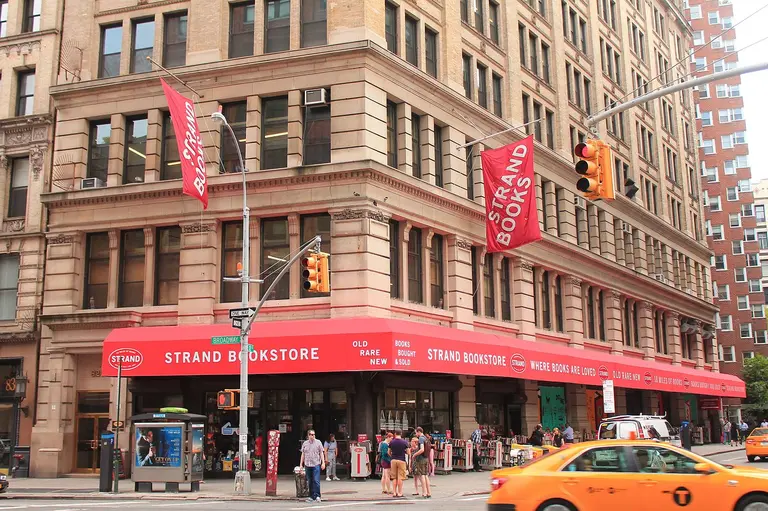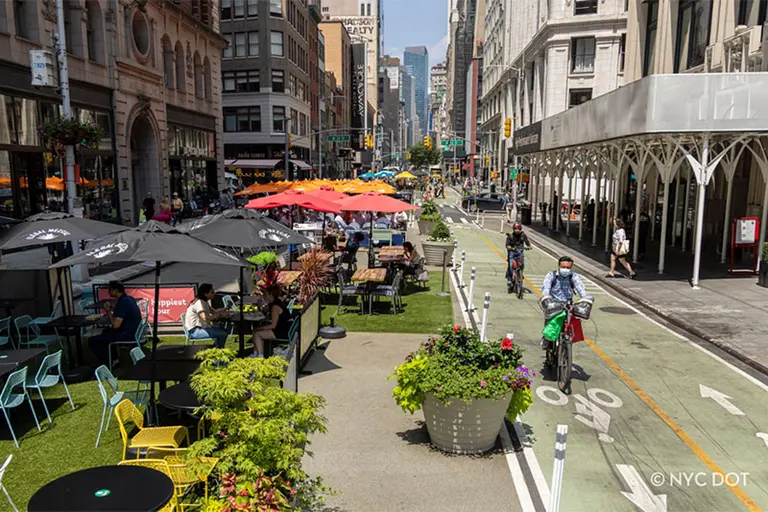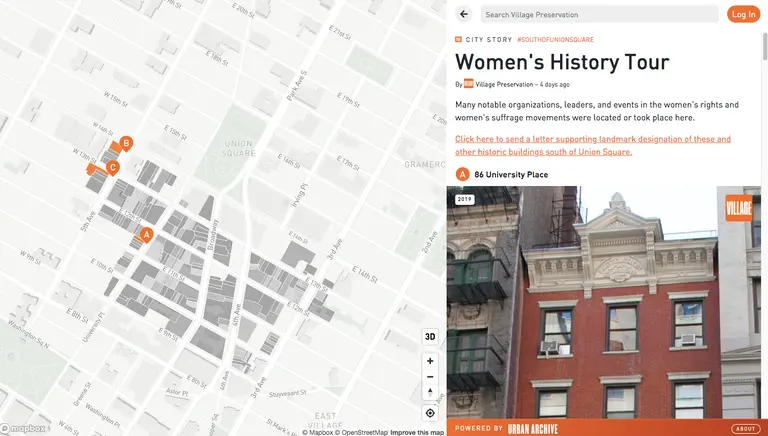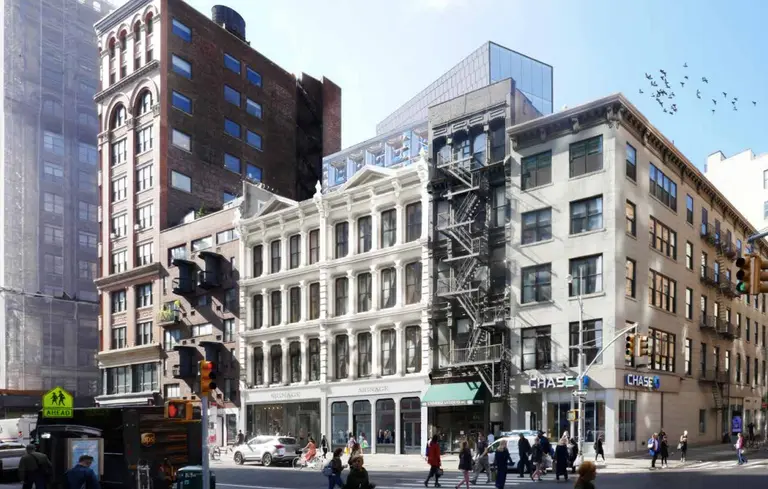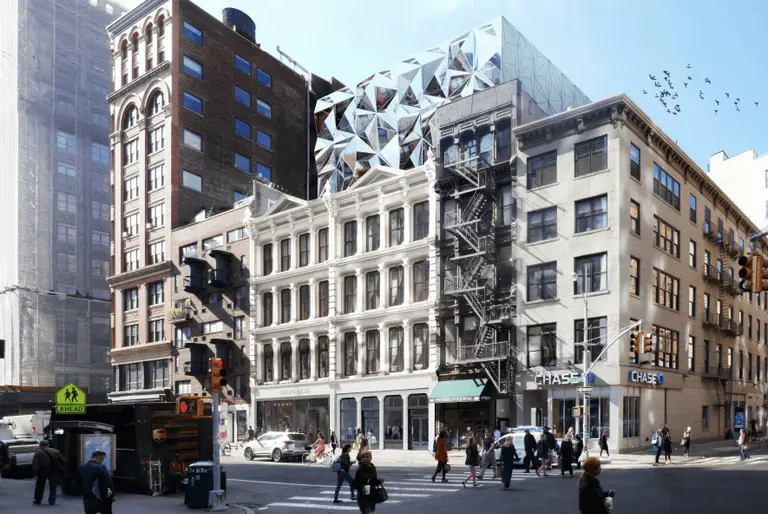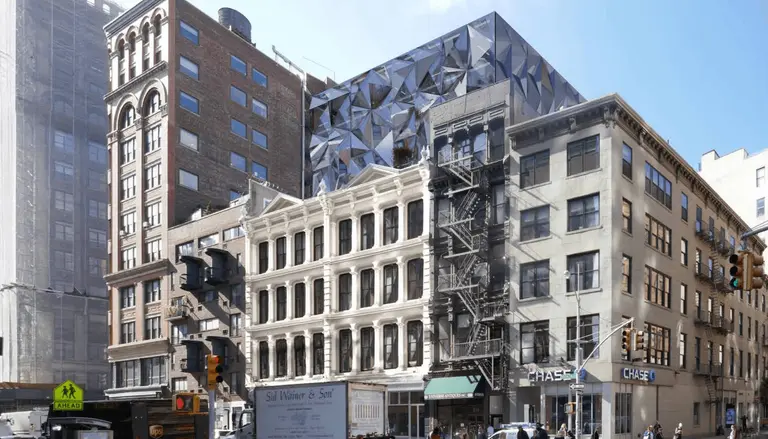Beloved bookstore the Strand fights back against landmarking proposal
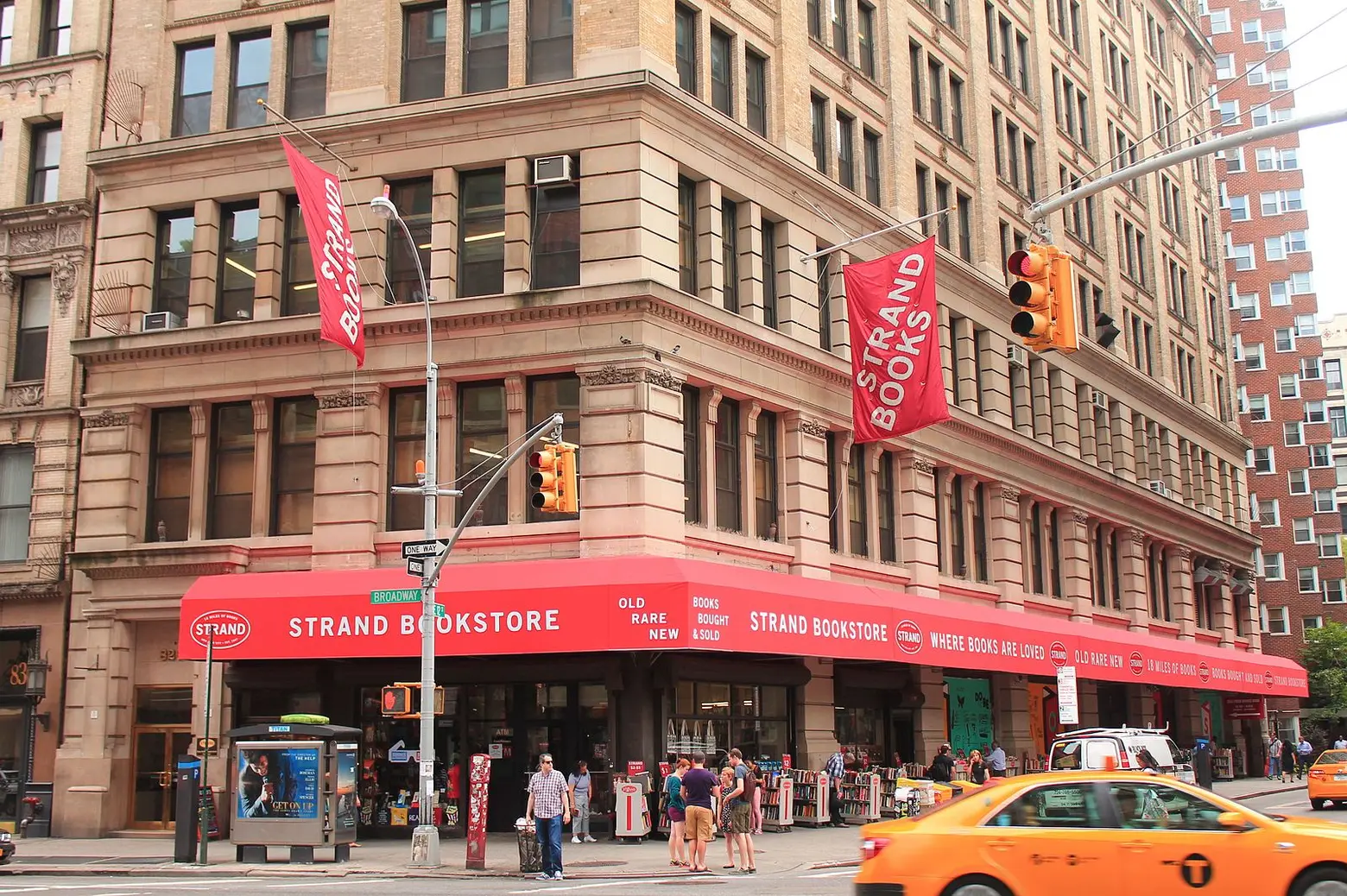
Photo via Wiki Commons
Earlier today, the Landmarks Preservation Commission held a public hearing to consider landmarking seven buildings on Broadway between East 12th and 14th Streets, one of which many already recognize as an unofficial NYC landmark — The Strand bookstore. In advance of the hearing, The Strand voiced strong concerns that the designation would place crippling restrictions on the scrappy business and potentially threaten its future, as the New York Times reported. Referencing the recent tax incentives that Amazon received to relocate to Long Island City, Strand owner Nancy Bass Wyden said, “The richest man in America, who’s a direct competitor, has just been handed $3 billion in subsidies. I’m not asking for money or a tax rebate. Just leave me alone.”
As 6sqft previously reported, the buildings under consideration are adjacent to the $250 million tech hub, a 21-story tech training center planned to open in 2020. Since getting the green light in August, the tech hub has been praised for its mission to provide training for New York’s tech entrepreneurs and add up to 600 new jobs, but many preservationists fear that the project will lead to more large-scale development in the area of Union Square, leading to the creation of a “Silicon Alley.”
The Strand’s founder Benjamin Bass opened the Strand in 1927 on Fourth Avenue, what was then called “Book Row” and home to nearly 50 bookstores. He moved the independent bookstore to 826 Broadway in 1956, and his son Fred Bass bought the building in 1996 in an effort to help the cultural icon weather changing times. The Strand has remained in the Bass family since its founding in 1927 and is currently co-owned by Nancy Bass Wyden, Benjamin’s granddaughter, who has been working there since she was 16. Today, the Strand is one of the largest bookstores in the world and is best known for its “18 miles of books” slogan, $1 used book racks lined up on the street, and popular book buy-back program.
Over the years, The Strand has been fighting to stay afloat as a bookseller and retailer in New York City, and in the era of Amazon. The number of bookstores in NYC has decreased by nearly 80 percent over the past 70 years, from 369 in 1950 to only 79 in 2018. The Strand says the landmark designation would limit their ability to perform future upgrades in a timely, flexible manner. Additional regulations would delay everything from necessary flood repairs to upgrading the awnings or changing the layout of the store, as they would have to defer to the bureaucratic processes of the LPC.
A vocal group of their supporters has come out to say that the landmark status would place even more burdens on a business that is already operating with the thinnest margins. This includes prominent writers such as Art Spiegelman, Fran Lebowitz, and Gary Shteyngart. Lebowitz told the Times, “Usually I’m on the side of the preservationists, but in this case, I agree with Nancy, because I know the Strand is a store, but it’s really a cultural institution that’s essential to the city. And to put [landmark restrictions] on top of a bookstore is just not fair.”
On the flip side, the Historic Districts Council urged the commission to consider the historic significance of the building, which was designed by William H. Birkmire, an architect who claimed to have conceived the structural system in the 1888 Tower Building — considered by some to be the city’s first skyscraper — and the world’s first metal skeleton building without masonry adjuncts. 826 Broadway was originally built to accommodate the garment industry, a rapidly growing business in turn-of-the-century New York which held nearly half of the nation’s garment factories by 1910. In a written statement, HDC executive director Simeon Bankoff emphasized that the Renaissance Revival-style building represents “an intact work by a figure pivotal in the development of steel frame construction and skyscraper design, as well as a significant contributor to Broadway’s development, and a reminder of the city’s garment-industry history of commerce and labor.”
In addition, The Strand argued that their building is already overbuilt and has no air rights, so there is no danger of the building becoming just another high-rise, glass building or suite of luxury apartments. This sentiment was echoed by Andrew Berman, Executive Director of the Greenwich Village Society of Historic Preservation, who told 6sqft in an email that he would rather the city focus on sites that are more likely to be threatened by the incoming tech hub. “We and thousands of neighborhood residents called for comprehensive landmarking or zoning protections for this area to accompany any approval of the Tech Hub upzoning next door. Unfortunately, what we got from Councilmember Rivera was a promise by the city to consider just these seven cherry-picked buildings for landmark designation, none of which are in danger and probably never would be due to their size. We are urging the Landmarks Preservation Commission to take a step back and take a broader look, protecting all the important history in this area, and prioritize sites which are presently or potentially endangered, as opposed to those which will likely be safe in perpetuity no matter what the Commission does.”
Today’s public hearing heard testimony from both sides of the argument, and due to the overwhelming turnout, the LPC has agreed to hold a second hearing before any formal decision is made. No date for this hearing has been announced yet. In a statement, the LPC said they will “continue to work with the owner of 826 Broadway…to address her concerns and ensure that this cultural institution endures. LPC successfully regulates thousands of commercial buildings across the city and we are sympathetic and responsive to their needs.”
RELATED:
